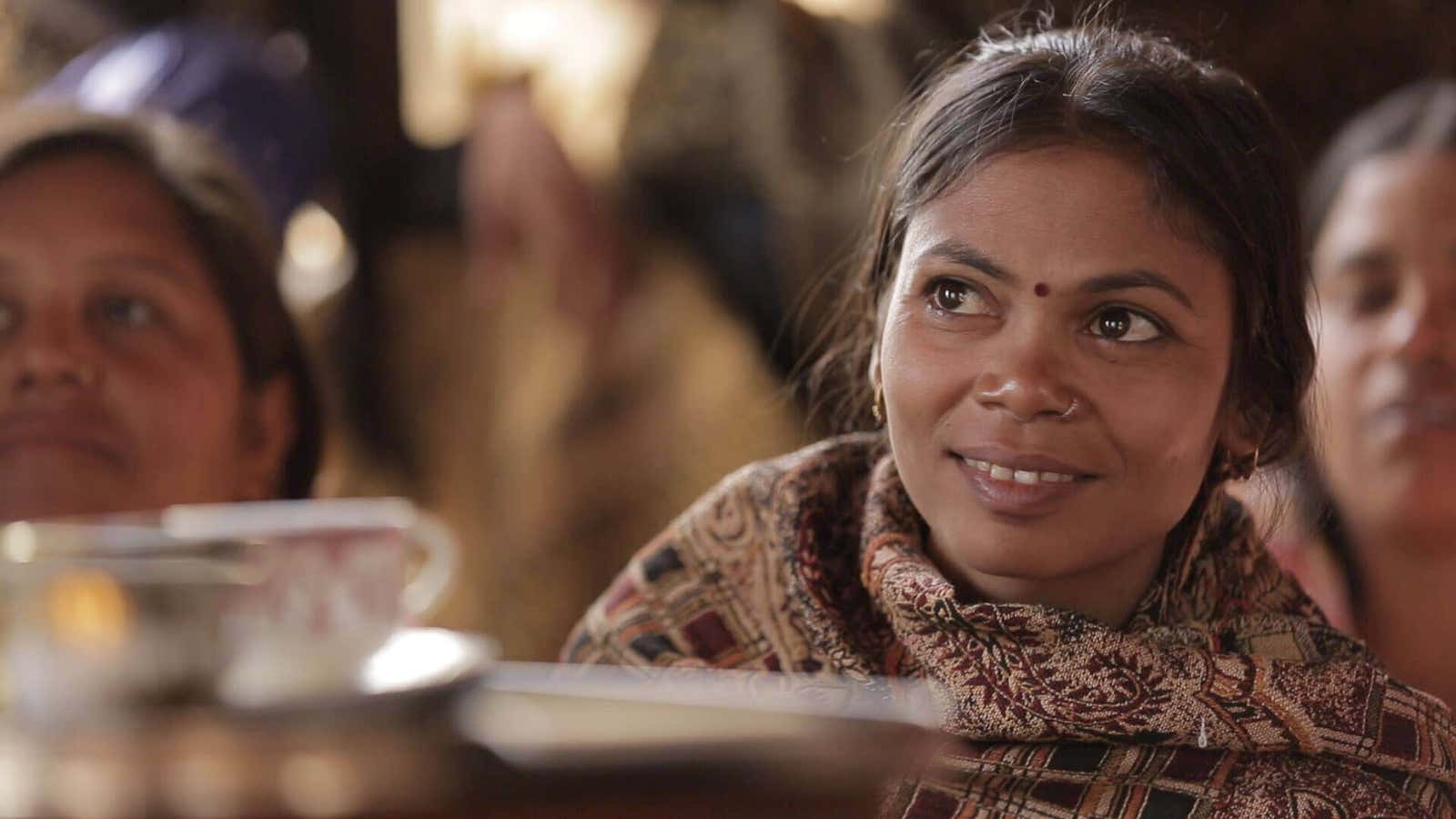Media organisation Khabar Lahariya, the subject of the Oscar-nominated documentary Writing with Fire, published a statement on its website on Monday (March 21) claiming that the film inaccurately depicts the rural, women-led collective as having “a particular and consuming focus of reporting on one party.”
The documentary is “a story which captures a part of ours, and part stories have a way of distorting the whole sometimes,” the statement said.
The statement raises questions about the freedom of expression enjoyed by filmmakers and the responsibility they owe their subjects.
Directed by Rintu Thomas and Sushmit Ghosh, Writing With Fire champions Khabar Lahariya‘s boots-on-the-ground journalism and success in creating an all-women newsroom. The documentary was filmed in Uttar Pradesh between 2016 and 2019 when Khabar Lahariya was pivoting from a newspaper into being a digital newsroom.
The filmmakers follow chief reporter Meera Devi and her staffers Shyamkali Devi and Suneeta Prajapati as they chase news leads, jostle their way through swarms of largely male journalists, and deal with contemptuous government officials and unsupportive family members.
Going by trailer and published reports and reviews, some sequences place the efforts of the women against the backdrop of hardline Hindutva politics and the social polarisation in Uttar Pradesh. Khabar Lahariya has 30 reporters and freelancers in 13 districts in Uttar Pradesh and Madhya Pradesh, according to its website.
“The film is a moving and powerful document, but its representation of Khabar Lahariya as an organisation with a particular and consuming focus of reporting on one party and the mobilisation around it is incorrect,” said the Khabar Lahariya statement. “In our two decades, we have had a newsroom with women differing on political opinions and ideologies. In 20 years, we have reported on (and befriended) many parties in Uttar Pradesh that have said they will stand for the rights of the poor, the marginalised, and we have shown them all the mirror when they have not done what they said.”
Thomas and Ghosh told Scroll.in that they do not believe that they misrepresented their subject: “We filmed Khabar Lahariya’s role as an independent watchdog in a dynamically changing political landscape from 2016-2019. During this period, the ruling party was the most important party at that time and so editorially, we focused on that aspect of their reporting. It was never our intention to create any other impression.”
Gap between expectation and results
Some of the differences between Khabar Lahariya and the filmmakers have to do with a gap in expectation and the end result, Kavita Bundelkhandi, the co-founder of Khabar Lahariya, and Meera Devi told Scroll.in.
“We have a wide range of work and have done all kinds of reporting,” Bundelkhandi said. “The proof of this is on our video channel. We have our own message and values. That is why we allowed the filmmakers access.”
There have been laudatory films made on Khabar Lahariya in the past, Meera Devi said. “We didn’t think this film would be such a one-sided story that was made according to their own agenda and not according to [the diversity of] our work,” Devi said.
Thomas and Ghosh said that when they approached Khabar Lahariya in 2016 with the idea of making a film on them, “we shared that we imagined this to be an independent film that maintains our editorial independence in telling a story about them.”
They added: “We respect that this may not be the film that they would have made about themselves but it does fairly represent the important work that they do.”
The Khabar Lahariya statement came even as Writing With Fire is poised to make a splash at the Oscar awards, which will be announced next Monday (March 28), Indian time. After being premiered to acclaim at the Sundance Film Festival in January 2021, the documentary has since been shown at several prestigious festivals.
It is the first Indian production to be shortlisted for an Academy Award in the best documentary feature category. Should Writing With Fire score a win on March 28, it will also mark the first time Indians have lifted a trophy in a directing section.
The three journalists profiled in the film as well as Kavita Bundelkhandi watched Writing With Fire in 2021 itself. “The journalists at Khabar Lahariya have through all of 2021, joined the filmmakers virtually at several festivals and panel discussions representing the film and talking about their work,” Thomas and Ghosh said. “They have also used the spotlight on the film to speak about their work independently with the international media.”
These include a lengthy interview that Meera Devi did with the filmmakers at a documentary festival in Amsterdam, where she asked them about their editorial choices and their perception of some of the issues raised in the film, such as caste.
Apart from being on the film festival circuit, the documentary has been released in theatres in the US. However, Writing With Fire is not yet available in India.
Bundelkhandi said that Khabar Lahariya had been flagging its concerns to the filmmakers ever since they first saw what they thought was a rough cut. Matters came to a head when the entire organisation saw the film together in late February through a password-protected link.
“We have been raising these questions right from the beginning and have been emailing them,” Bundelkhandi said.
This story was originally published on Scroll.in. We welcome your comments at ideas.india@qz.com.
